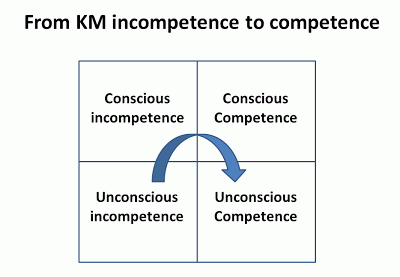What is the potential of knowledge brokering?
On my latest field trip I made an interesting observation with regard to Knowledge Management. First, I visited our field office in Kosovo to learn about volunteer related activities and projects in the brand new nation. After two days, I travelled to Macedonia to visit a UN colleague from a partner agency there. Hanging out with the colleague I also got to know a volunteer who is working in the country office there, highly motivated and enthusiastic about possible opportunities to involve community volunteers in local development projects. However, he felt very disconnected from other volunteers in the surrounding countries and he found it difficult to find partners for possibile joint activities in the region.
It hardly took any effort for me to connect this committed individual with the focal point for volunteer activities in Kosovo, once I had seen what both were working on. But none of them would have found out on their own.
When we talk about KM and that the focus of KM should be on people, I think we highly underestimate the impact that the role of an institutionalized knowledge broker could have. To some extent KM work could just be described as match-making. Looking at what different people do and trying to set up linkages and partnerships between individuals, teams and units, that could benefit form each other in a certain area.
For an international organisation, I even wonder if it might be a worthwhile investment to create the position of a Knowledge Broker who is mostly travelling around and talking to people. Not necessarily to document the experiences that people share (although that can be a valuable by-product) but to establish connections and matches among people who otherwise wouldn't know about each other's work.
The important point here is that someone is much more likely to connect to somebody else with the intentiona to exchange knowledge if s/he was referred to that person by somebody else, rather than just finding a name in a lessons learnt database. The downside of course is that this approach is costly. But then, who said good KM is for free?
It hardly took any effort for me to connect this committed individual with the focal point for volunteer activities in Kosovo, once I had seen what both were working on. But none of them would have found out on their own.
When we talk about KM and that the focus of KM should be on people, I think we highly underestimate the impact that the role of an institutionalized knowledge broker could have. To some extent KM work could just be described as match-making. Looking at what different people do and trying to set up linkages and partnerships between individuals, teams and units, that could benefit form each other in a certain area.
For an international organisation, I even wonder if it might be a worthwhile investment to create the position of a Knowledge Broker who is mostly travelling around and talking to people. Not necessarily to document the experiences that people share (although that can be a valuable by-product) but to establish connections and matches among people who otherwise wouldn't know about each other's work.
The important point here is that someone is much more likely to connect to somebody else with the intentiona to exchange knowledge if s/he was referred to that person by somebody else, rather than just finding a name in a lessons learnt database. The downside of course is that this approach is costly. But then, who said good KM is for free?



Comments